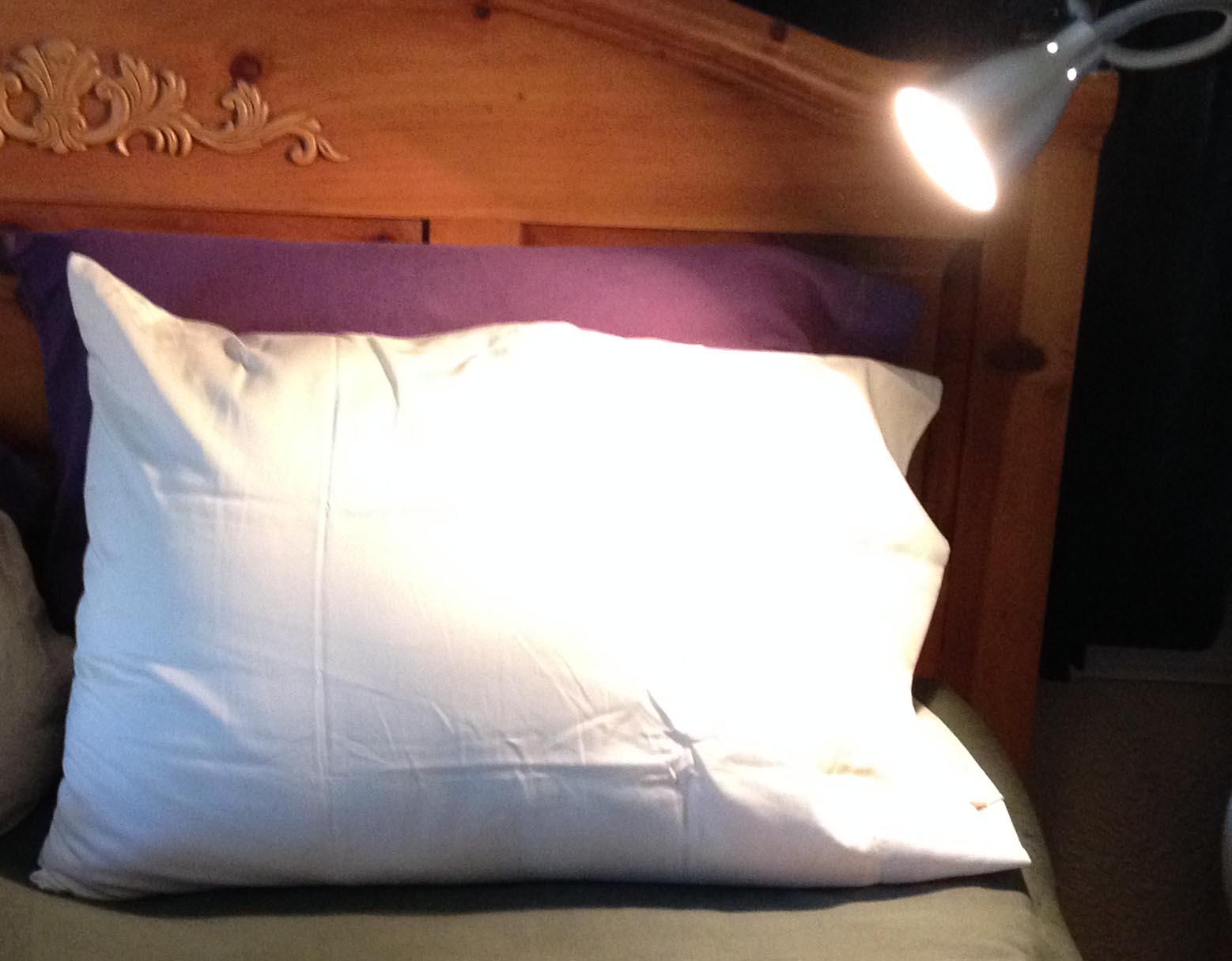
Water | Resources
A Couple of Interesting Posts About Thyroid Disease
A whole summit is coming up in March about thyroid and since many people with sensitivities to chemicals also have thyroid problems (including myself) I thought I would pass a long a couple of interesting items that have been released in advance.
First is the post 5 Toxic Skincare Ingredients You Should Avoid if you Have a Thyroid Condition. While I know most of you have already eliminated these five ingredients entirely from your personal care products by choosing natural and organic body care products , this article gives good scientific data about why we should be doing this.
Also there is an interesting post called Why Women Have More Thyroid Disorders: The Izabella Entz Safety Theory that says the thyroid gland is part of our body’s sensing pattern that scans the environment to determine what is safe and what is dangerous. When the thyroid gland senses danger, it can actually initiate an autoimmune response.
This begs the question: Are our thyroid glands sensing the danger of toxics in our environment and causing our bodies to respond?
The upcoming summit will have more than 100 presenters talking about cutting edge cures for thyroid disease. If you want to know more, visit http://thethyroidsecret.com
Between my environmental controls, diet, and taking Armour thyroid supplement, I’ve pretty much got my thyroid condition under control. But I’d like to not be dependent on taking the supplement. So I’m going to keep an eye on the summit and see what the latest is.
Microfiber Mops
Question from Bonnie
Hi Debra,
I am shopping and looking at cotton and microfiber mops.
I checked your website and it said microfiber tiny plastic pieces were polluting water.
But I also saw another section that said microfiber is nontoxic.
Could the plastic fibers be inhaled. Are the microfiber mops safe?
Thanks.
Debra’s Answer
It’s not toxic to use a microfiber cloth or mop and it doesn’t give off microfibers into the air.
So I have no reason to tell you not to use a microfiber mop from a health viewpoint.
But microfibers are synthetic materials made from crude oil and they don’t biodegrade.
Cotton, on the other hand is a plant, which will biodegrade gracefully back into the environment after serving as a mop.
Avocado Green Mattress vs Naturepedic
Question from Shilpa
Hi Debra,
I have been researching for a safe mattress ever since I learnt about off gassing. My kid has turned 5 and I was startled to find out how dangerous it is, to be sleeping on the regular memory foam. I am planning to rid all mattresses at home.
I found your site to have valuable information. I would really appreciate if you can compare naturepedic vs avacadogreenmattress . Every time I try a 100% organic bed, it takes me to naturepedic. Is that the only company we should look for or am I missing something here.
Your recommendations and suggestions will be really helpful.
Debra’s Answer
Well, Naturepedic really is the best organic mattress (see Q&A: A Comparison of Certified Organic Mattresses)
But I’ll compare them to Avocado.
| Naturepedic | Avocado | |
| Latex | GOLS certified organic | natural latex |
| Wool | GOTS certified organic | natural wool |
| Cotton | GOTS certified organic | GOTS certified organic |
The biggest difference, however, is that Naturepedic is a certified organic mattress manufacturer, which means that every aspect of the process is certified organic—everything from the materials to the factory.
The only thing organic about this avocado is the cotton. Who knows what’s happening in the factory.
I’ll just mention that the Avocado website headline is false and misleading. they are not “Earth’s most green & healthy mattress.”
Kapok Pillows at White Lotus Home
White Lotus Home kapok pillow on my bed
I originally published this on Shop With Debra in 2015, and took it down when I stopped publishing that blog. I’m bringing it back because I still sleep on this pillow and it’s still the best pillow I’ve ever had and someone asked a question about kapok.
After I read that White Lotus Home had kapok pillows, I knew I had to have one. My wool pillows, which I have loved, don’t last as long as I would like, but are much better than cotton fill, which is too hard for me.
So when I learned that kapok is more resilient and lasts longer, I had to try it.
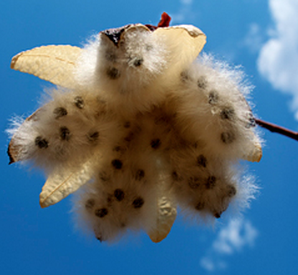 Kapok is the fluff around a seed that grows in a protected pod on the magnetic kapok tree. Fibers are pulled from the seeds pods, then air cleaned by spinning at high speed, resulting in a soft, puffy, resilient material that has no dust or pod debris. Read more about kapok here.
Kapok is the fluff around a seed that grows in a protected pod on the magnetic kapok tree. Fibers are pulled from the seeds pods, then air cleaned by spinning at high speed, resulting in a soft, puffy, resilient material that has no dust or pod debris. Read more about kapok here.
My pillow arrived on Monday and it’s a dream come true.
As I told White Lotus Home President Marlon Pando on Toxic Free Talk Radio , the first night I slept on it, I put my head down and fell right to sleep. And I’ve been sleeping better every night since. Amazing the difference a pillow can make.
Another thing I love about this pillow is that it has an invisible zipper on the side, so I can open the pillow and move the fill around, or add more, or change it. This way I can buy more fill if needed instead of a whole new pillow. And the zipper is “invisible” so you don’t even see or feel it.
I chose this pillow because it’s made from organic cotton and kapok collected from the wild, so it’s as pure as you can get. I know the quality of White Lotus Home. I’ve visited their work space and showroom in Highland Park NJ, so I know the manufacturing environment is clean, toxic free, and fragrance-free through and through.
I’m going to order another one.
AND…I just received an email from White Lotus Home about their buckwheat pillows and their buckwool pillows. Buckwool is half buckwheat, half wool, which offers the best of both fills. “While the Organic Buckwheat will mold to your desired shape, the layers of virgin wool provide a soft cushion between you and the firm buckwheat, and you can flip the pillow to whichever side you may need at the time.”
 |
Listen to my interview with Marlon Pando, Owner of White Lotus Home |
World Mercury Project

There have been many stories in the media this week about last week’s press conference by Robert F. Kennedy, Jr., Robert De Niro, Del Bigtree, Rev. Tony Muhammand and Nicholas calling for mercury-free vaccines in the US and other mercury reforms. They offered a $100,000 prize to any journalist who can produce a peer-reviewed scientific study that proves that mercury in vaccines is safe.
Kennedy has founded the World Mercury Project “to raise public awareness of the dangers and sources of mercury, with the ultimate goal of banning all uses of mercury on a global level. We believe the public is in critical need of accurate information with regard to the sources and dangers of mercury which will allow them to better protect themselves and their families from the potential devastating effects of the potent neurotoxin.”
“The average person does not know that mercury is the second most toxic element on the planet , nor do they know that it is an incredibly potent toxin even at small exposure levels. Once in the body, mercury has a high affinity for moving into the brain where it can become trapped for decades. Once in the brain, mercury causes a chronic inflammatory process in the tissue which has been connected to autism, Alzheimer’s, multiple sclerosis, amyotrophic lateral sclerosis (ALS or Lou Gehrig’s disease) and many more adverse health consequences.”
Though there has been a lot of attention on mercury in vaccines, there are many other sources of mercury exposure. And the World Mercury Project aims to address the elimination of all of them.
Their website contains much information about mercury, documented with studies (click on “LEARN MORE” in the menu for many links to health and environmental effects and related illnesses.
Every toxic chemical should have an organization like this dedicated to identifying the problems with the chemical, making them known to consumers, and eliminating them from consumer products.
In addition, here is an excellent complication of studies on mercury compiled by GreenMedInfo: GREENMEDINFO: Toxic Ingredient Thimerosal
Lead in Jewelry
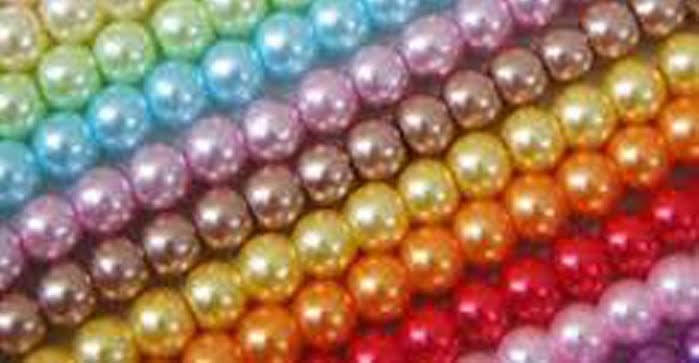
Fake opalescent pearls are one of the types of costume
jewelry that may contain lead.
My reader Craig, who I’ve mentioned before because he sends me so many suggestions for Debra’s List, sent me a whole list of websites this week that sell nickel-free products, which led me to create a whole new “allergy-free” section on Debra’s List. While browsing these websites, I came across one that sells “nickel- and lead-free” jewelry.
I haven’t really written about lead in jewelry, so wanted to do that now.
Lead is one of the most toxic substances there is. It is well known there is no safe level for lead, but still it is found in many consumer products.
One of them is costume jewelry. In fact, high levels of lead have been found in costume jewelry, especially costume jewelry for children. Lead has often been used in jewelry, to make the piece heavier, brighten colors, and to stabilize or soften plastic.
Lead exposure from costume jewelry can be dangerous, even deadly. So much so it is regulated by the State of California with the Metal-Containing Jewelry Law.
I don’t wear much costume jewelry myself anyway, but this is a reason not to. Especially do not give costume jewelry to children to wear.
The CDC says wearing toy jewelry will not cause your child to have high level of lead in their blood. Lead does not permeate through the skin. But children do put things in their mouths. If you have children in your home, keep any adult costume jewelry out of their reach as well, as they can be made ill if it is swallowed.
Typically precious metals and real stones do not contain lead and are safe to wear.
CBS NEWS: Costume Jewelry Found to Have High Level of Toxins and Carcinogens, Test Show
CALFIRONIA WATCH: Why should I be concerned about lead in jewelry?
Athena Allergy
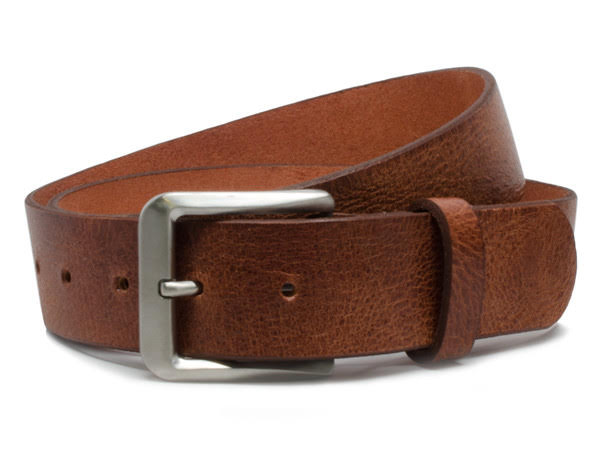 The largest selection of 100% certified nickel-free belts, buckles, watches and earrings along with nickel test kits and nickel barriers. Plus a lot of information about nickel allergy, nickel test kits, and more. Leather is vegetable-tanned. “Our Certified Nickel Free™ products are 100% nickel free including base metal and hardware and come with our unconditional guarantee to never test positive for nickel. We have over 45 years of combined contact dermatitis experience in the dermatology and allergy fields. We are your nickel allergy experts.”
The largest selection of 100% certified nickel-free belts, buckles, watches and earrings along with nickel test kits and nickel barriers. Plus a lot of information about nickel allergy, nickel test kits, and more. Leather is vegetable-tanned. “Our Certified Nickel Free™ products are 100% nickel free including base metal and hardware and come with our unconditional guarantee to never test positive for nickel. We have over 45 years of combined contact dermatitis experience in the dermatology and allergy fields. We are your nickel allergy experts.”
Grayling Jewelry
 Nickel-free earrings, necklaces, and bracelets. “We love to see you shine, and we’ll settle for nothing less than the best. That’s why we use incredibly brilliant, highly-faceted crystals and lustrous crystal pearls from coveted houses like Swarovski to make our baubles bling. We’re committed to creating affordable nickel-free jewelry that is safe for sensitive skin. We create jewelry that’s classic with an edge, and our beautiful designs will keep up with the pace of your life and never go out of style.”
Nickel-free earrings, necklaces, and bracelets. “We love to see you shine, and we’ll settle for nothing less than the best. That’s why we use incredibly brilliant, highly-faceted crystals and lustrous crystal pearls from coveted houses like Swarovski to make our baubles bling. We’re committed to creating affordable nickel-free jewelry that is safe for sensitive skin. We create jewelry that’s classic with an edge, and our beautiful designs will keep up with the pace of your life and never go out of style.”
Mystic Sets
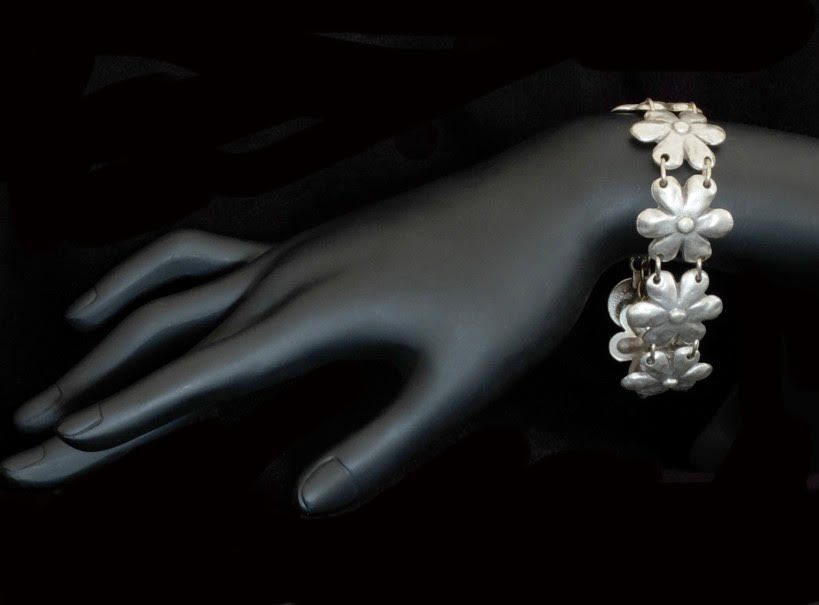 Beautiful, handpicked accessories made in Grand Bazaar, Istanbul, Turkey. “All of the stunning necklaces, bracelets, earrings and rings reflect the mysticism of Grand Bazaar and the east. You will also find very contemporary pieces that would make perfect statements. All of the accessories are nickel and lead free, as a result, they are very comfortable to wear for a long time. In addition, they are silver coated and very light weight.”
Beautiful, handpicked accessories made in Grand Bazaar, Istanbul, Turkey. “All of the stunning necklaces, bracelets, earrings and rings reflect the mysticism of Grand Bazaar and the east. You will also find very contemporary pieces that would make perfect statements. All of the accessories are nickel and lead free, as a result, they are very comfortable to wear for a long time. In addition, they are silver coated and very light weight.”
Sensitively Yours
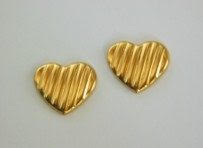 Nickel-free earrings in many styles—from simple to fancy. “Made from the most irritant-free metals available to eliminate skin and ear sensitivity and to ensure a comfortable fit. Normal piercing studs are made from 302 surgical steel. Our hypoallergenic earrings for sensitive ears are made from one grade higher, 304 surgical steel. We then use 7 to 10 mil of pure 24K gold overlay on not only every surgical steel post, but all other parts of the earring as well, including the backs. Pure 24K gold and surgical steel are some of the most irritant-free materials available – they are affordable and suitable for jewelry.”
Nickel-free earrings in many styles—from simple to fancy. “Made from the most irritant-free metals available to eliminate skin and ear sensitivity and to ensure a comfortable fit. Normal piercing studs are made from 302 surgical steel. Our hypoallergenic earrings for sensitive ears are made from one grade higher, 304 surgical steel. We then use 7 to 10 mil of pure 24K gold overlay on not only every surgical steel post, but all other parts of the earring as well, including the backs. Pure 24K gold and surgical steel are some of the most irritant-free materials available – they are affordable and suitable for jewelry.”

